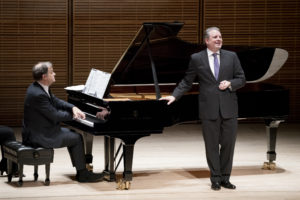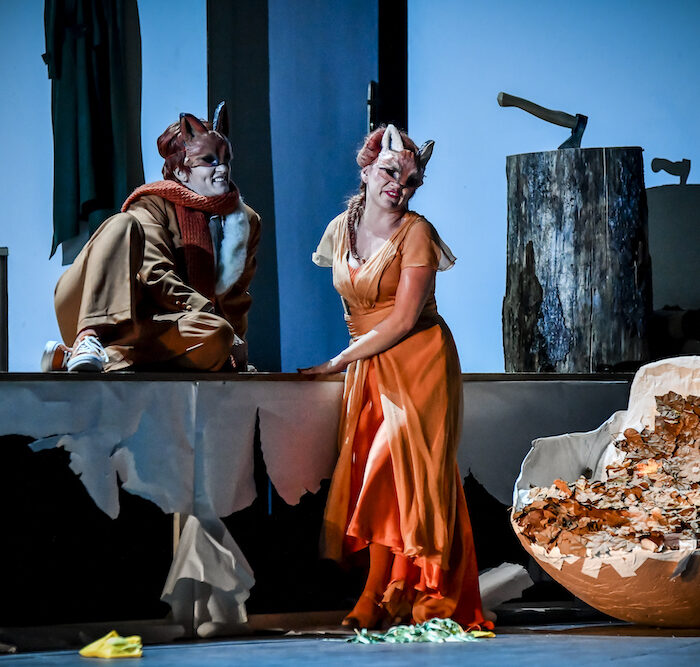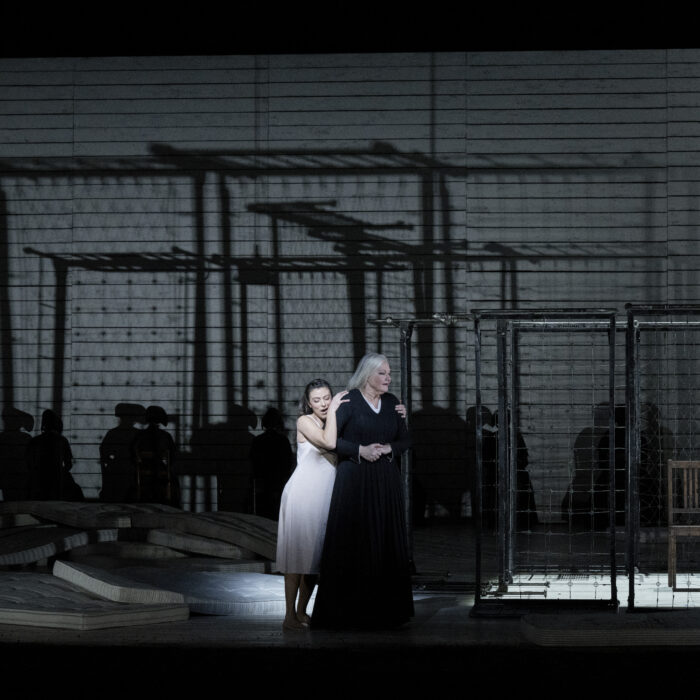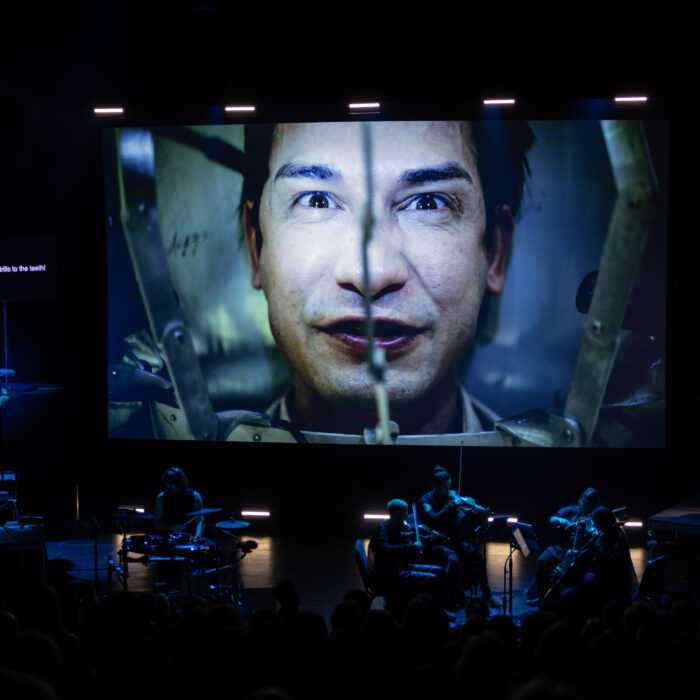
Carnegie Hall 2018-19 Season Review: Matthew Polenzani & Julius Drake In Recital
The Tenor & Company Deliver An Potent & Insightful Emotional Journey
By Logan MartellOn Sunday, February 24, 2019, tenor Matthew Polenzani took to Carnegie Hall for a sold-out recital of song cycles from Schubert, Beethoven, Brahms, and Janacek. Accompanied by Julius Drake, this evening’s recital featured not only a finely-crafted program, but experienced artists who burned with a passionate fire.
Some Schubert To Start
First on the evening’s program was a selection of songs by Franz Schubert, beginning with “Nocturne.” This highly tender number made for a captivating opening to the recital; the text followers an elderly man who enters the forest to die in peace, with the forest promising sweet repose. Due to its theme of endings and gracefully transcending death, its placement at the beginning of the program allowed Polenzani to begin the evening’s journey with the closing of another.
Following this was “In Spring,” which bore the relishing, almost idyllic quality often associated with beginnings. Polenzani beautifully laid out the imagery of nature as seen through the memories of a lover, before shifting into the tumult caused by the thought of her lost, and finally synthesizing all these feelings through the desire to become part of nature and “sing a sweet song about her all summer long.” The tenor placed a delicate attention on the word “her” which bore a wealth of emotional nuances happening almost simultaneously, conjuring with a single breath nearly all the highs and lows that come with love and loss.
Last of the lieder from Schubert was “In the Sunset,” which follows the thoughts of a narrator who, having seen the beauty of the light, finds no reason to fear night’s darkness; Polenzani ended this portion of the recital with a strong affirmation full of the desire to live despite the end which awaits all things.
Bringing On the Mezzo
Joining Polenzani this evening was mezzo-soprano Jennifer Johnson Cano, who performed Johannes Brahms’ song cycle “Zigeunerlieder, Op. 103.” This cycle looks upon the gypsy lifestyle with Romantic fervor, seeing its freedom as exotic as it is enticing. Cano gave a charged, determined passion to the opening number “Gypsy Songs,” bolstered by the driving accompaniment played by Drake.
The second song, “High-towering Rima river,” details a lover singing to the river, which Cano treated with an almost-possessive flair, as heard by the fierceness she placed on the words “my love.”
Making for a lighter shift was the third number, “Do you know when my beloved.” Here, Cano delivered the text with a fun, excited body language as she shared her passionate secret with the audience. This exuberance returned in “The young gypsy boy leads to the dance,” as Cano relished in outlining the text.
The following number, “Three little roses in the row,” saw Cano launch into the pattering lyrics with enthusiasm and precision, skillfully handling the alternating, whimsical shifts in tempo and dynamic.
The last number of this cycle, “The red clouds of evening draw,” was reminiscent of the earlier-heard “In the Sunset” due to their imagery of crepuscular beauty. As Cano sustained a powerful note on the word “firmament,” Drake’s accompaniment sounded with two strong chords like the pulsing of a heart, this musical device was used to punctuate the ends of Cano’s phrases and emphasize her romantic tones.
Together For Janacek
A far more searing look into the bohemian lifestyle came when Polenzani and Cano shared the stage to sing Leos Janacek’s cycle, titled “The Diary of One Who Disappeared.”
The first song, “One day I met a gypsy girl,” featured a dire accompaniment to contrast the imagery of the gypsy’s untamed beauty. After that fleeting encounter, Polenzani sang the following number “That black-eyed gypsy,” while wrapped in infatuated torment. This angered atmosphere gave way to uneasy, lingering chords which set the languid rhythm of “Through the twilight glow-worms dance.” Here the narrator languishes over his separation from the object of his affections, and Polenzani closed this number with a strong but vulnerable softness that well-captured the narrator’s surrender to the shackles of love.
As the narrator toils in the field for the song “Why has my plow broken?” his mounting frustrations result in a chance encounter with the gypsy Zefka; this frustration is reflected in the accompaniment full of dissonant trills, crossing hands, and tumultuous tones which conjure the feelings of one possessed.
After all the prior musical and dramatic build-up, Cano strode back on stage and wasted little time in enticing the narrator; Polenzani’s expression told much of his inner conflict, which bore needing as well as uncertainty as he attempted to rebuff her advances. The scornful tone shifted back to a sweeter one as Cano redoubled her efforts, backed by dissonant, seductive arpeggios.
It’s here that a trio of women began to sing from offstage, acting as a Greek chorus; these haunting voices were supplied by mezzo-sopranos Marie Engle and Megan Esther Grey, and soprano Kathleen O’Mara. After finally consummating their desires for one another, the narrator does not find relief, but more anguish with the rapid tempo of “Forest’s shady height,” which settled into a slower-burning sense of unease for “Sunlight on the meadow.”
These emotions reach a fevered peak for three numbers, “What has come over me?” “Who can escape his fate,” and “Nothing matters now.” Here Polenzani unloaded with all the sounds and fury that spoke of the chaos his heart had been thrown into upon the realization of what a life with Zefka would entail. These fears were realized in the brief song “Now she bears my child,” which bore a troubled delivery to underscore the loving, sensual lyrics.
The final song “Then farewell, dearest land,” saw the narrator ready to close the book on his former life and adopt the bohemian life with Zefka. Despite the sense of resignation the lyrics bear, Polenzani closed with an enormous power as Drake hammered out the conclusion.
One Encore
This evening’s recital saw only one encore, but one with great beauty and personal significance, as Polenzani would elaborate. The trouble, he explained, lied in choosing a song that could follow up the tremendous strength and resolution of Janacek’s cycle. What Polenzani settled on was Frederic Weatherly’s famous Irish ballad “Danny Boy,” a number that was often requested of him during his childhood when he sang with his father’s barbershop quartet.
Polenzani’s traditional interpretation was replete with a warm, inviting beauty of sound that seemed to come effortlessly. This encore was given a stunning conclusion as Polenanzi sustained the final note with a chilling, gossamer delicacy that was answered by the tremendous applause from the audience.
Categories
Stage Reviews

